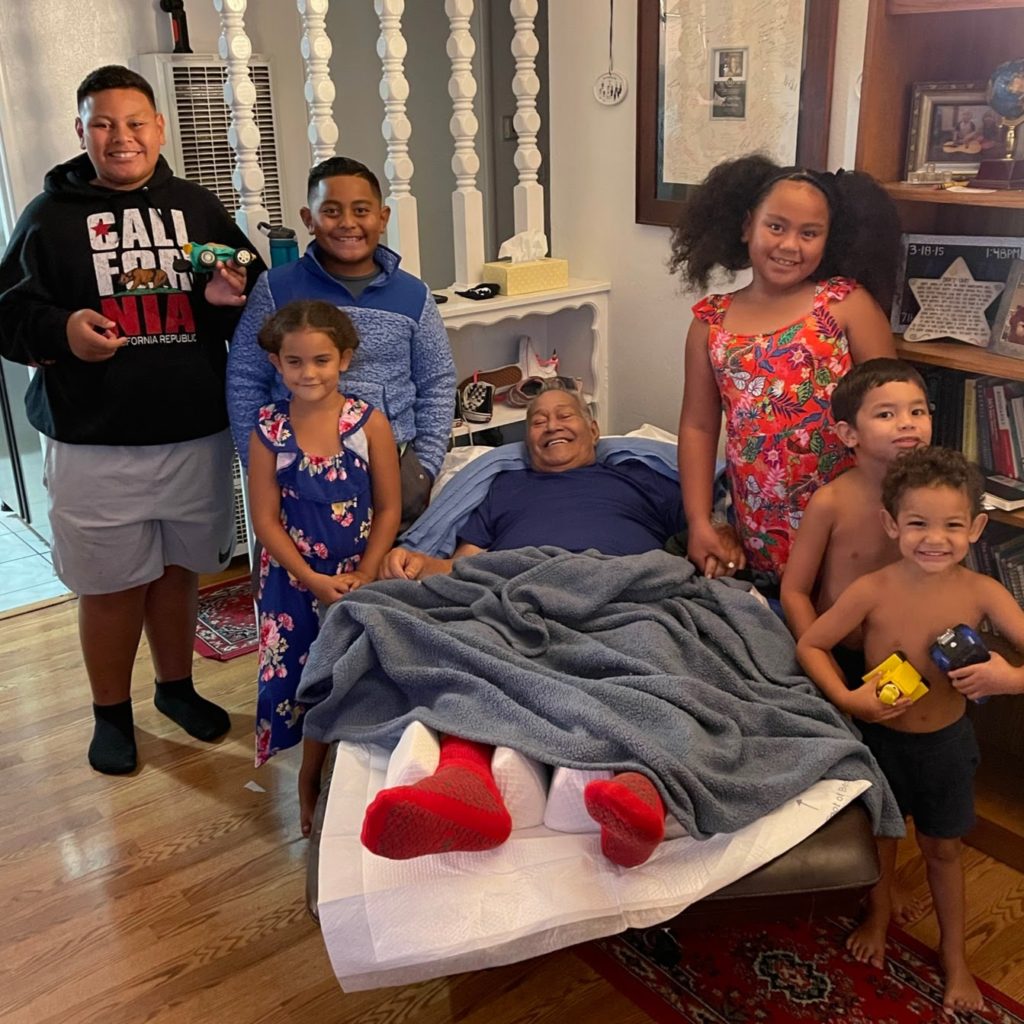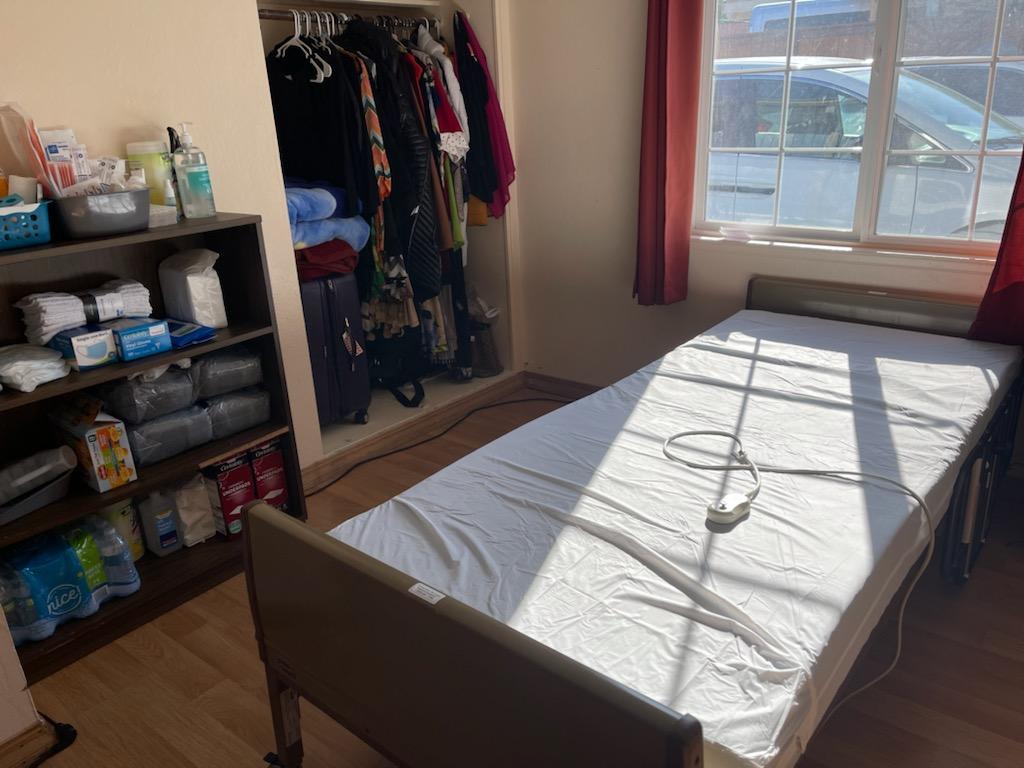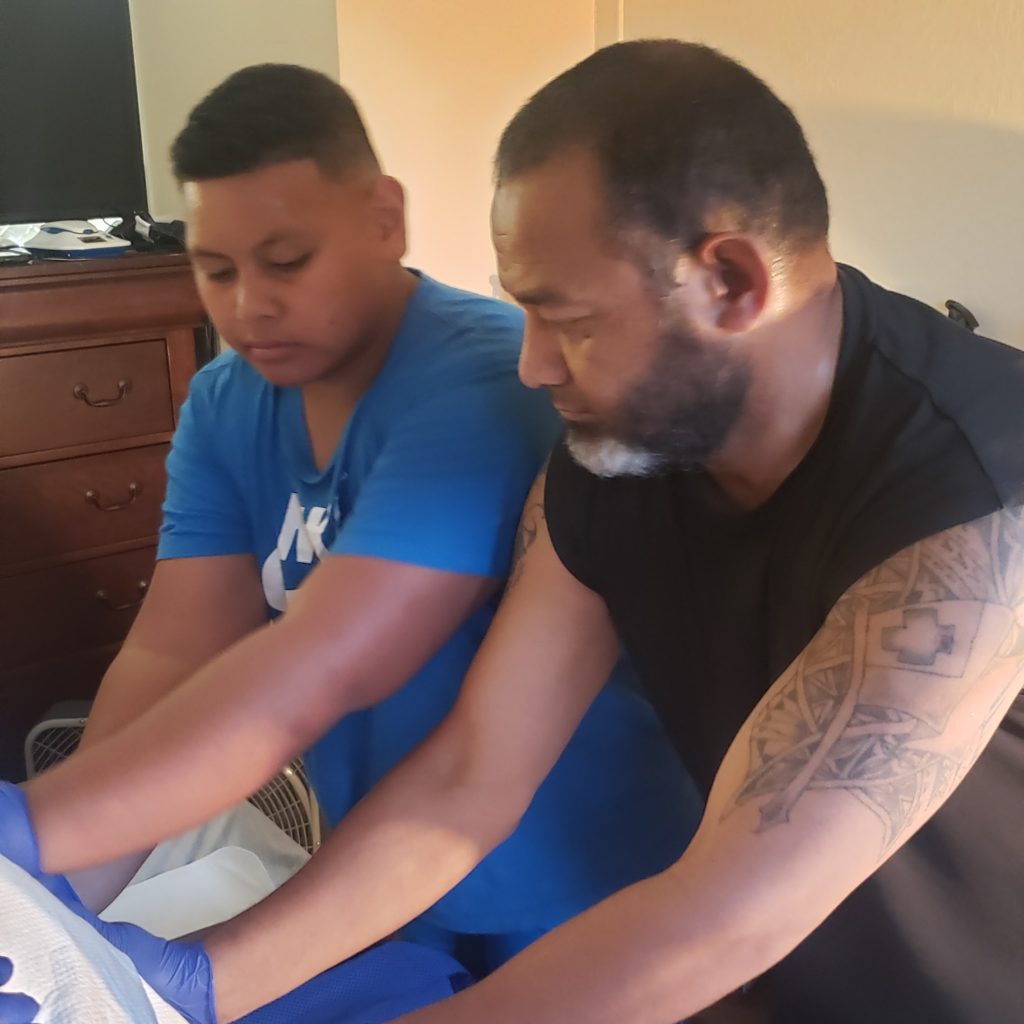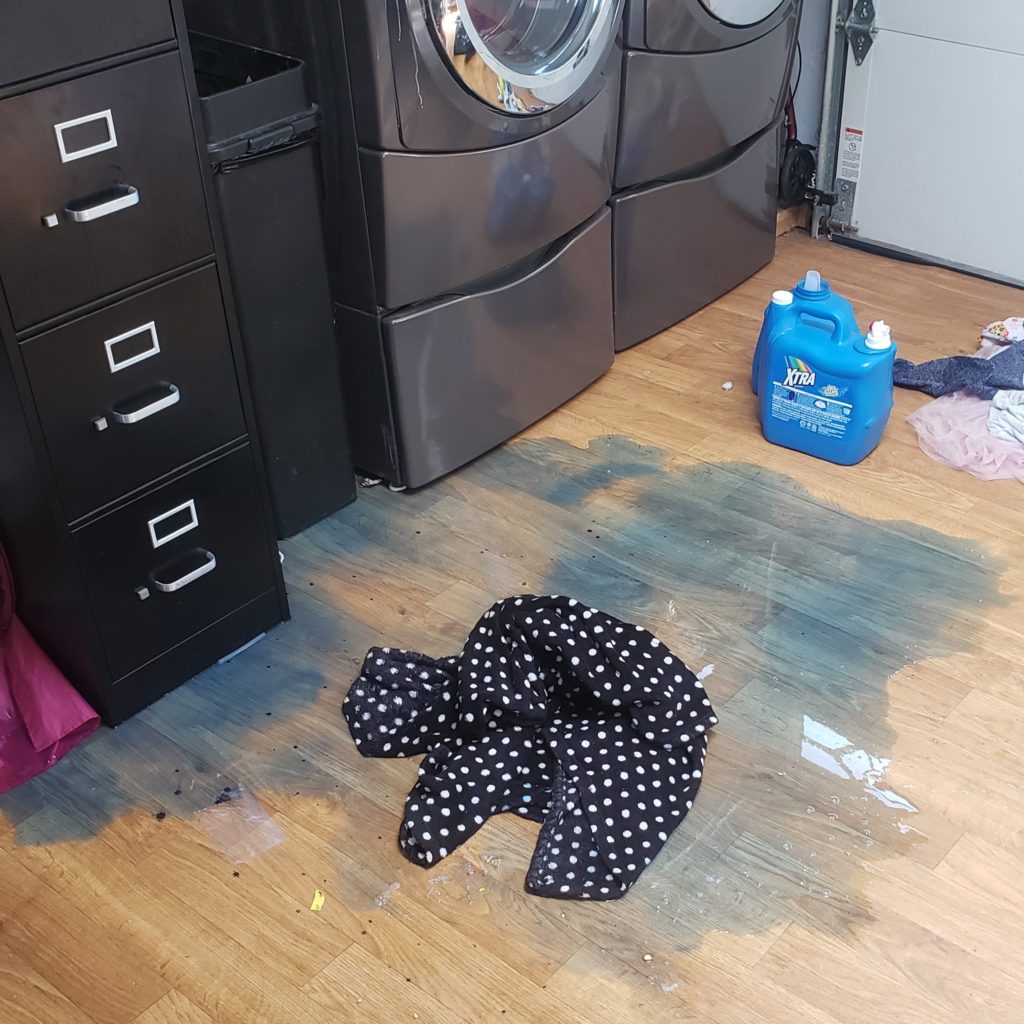5 Lord, you alone are my portion and my cup;
Psalm 16:5-8
you make my lot secure.
6 The boundary lines have fallen for me in pleasant places;
surely I have a delightful inheritance.
7 I will praise the Lord, who counsels me;
even at night my heart instructs me.
8 I keep my eyes always on the Lord.
With him at my right hand, I will not be shaken.
Psalm 16 is my favorite psalm. Each verse speaks to me in a very real way, and I return to it often, especially when I’m in life situations that have the potential to shake me to the core. Because I have a diagnosed anxiety disorder, there are many things that fall into the category – as small as being late for church and as big as having a baby. In those moments, I reread this Psalm to remind me to keep my eyes always on the Lord.
Our family has recently been through one of those big transitions. My parents-in-law lived with us since January 2020. During most of that time, my father-in-law had medical issues and limitations but was generally mobile. He could use his cane to get around the house and his walker if we were going out. We were very strict during quarantine in order to protect him because he was in every high risk category, and the day we all completed our Covid vaccines was a day of celebration in our house. Then in April 2020, he suddenly lost his mobility. He no longer had the strength to get out of bed on his own and fell several times in the course of a few days.

The final time he fell, it was in the driveway, and we had to call the paramedics because Grandma and I could not get him up. He was admitted to the hospital and discharged to a nursing home a few days later. Because of Covid restrictions, he was at the nursing home for 5 days before we were even allowed to see him. There were three patients per room, and Grandpa’s condition seemed to be deteriorating quickly. He needed a head CT, and the doctor’s office gave us an appointment six weeks out. In his current state, we were not sure if he would live for six weeks. Afa’s family works together in an inspirational way, showing what it looks like to truly love one another. All his brothers and sisters traveled to San Francisco to be there to support his dad and help make decisions about his care.
They decided that it would be best for him to go back to a hospital but not the one that discharged him without diagnosing the problem. He ended up staying in the second hospital for almost four weeks. As a family, we decided that sending him back to the nursing facility was not an option,.and on June 8, 2021, he was discharged to our home. Prior to discharge, I had to pray continually and have others pray for us because my anxiety could have easily taken control of my thoughts. Grandpa was still not ambulatory, so the caretaking would be a much heavier responsibility than it had been before we went into the hospital. He also needed IV infusions three times a day, which was honestly my biggest concern. With zero background in medical training, the idea of giving IV meds terrified me.
Cast all your anxiety on him because he cares for you.
1 Peter 5:7

The day Grandpa came home, all of our well-laid plans fell apart completely. My sister-in-law had to have an emergency tooth extraction, and Afa took her to the dentist. We asked the ambulance to come at a time when we knew they would both be back, but they arrived several hours earlier than that. The medics put him into the hospital bed with his head at the bottom and said they were unable to turn him around. What an inauspicious start to our new caretaking journey!
I have compared the first few weeks of Grandpa being home to the transition of having a new baby. The range of emotions is intense – from elation that he can be with us and with the kids, which was so good for his mental health, to fear that we were going to do something wrong to overwhelm with a whole new set of responsibilities to victory that we really can do this through God’s strength. And much like bringing home a new baby, the first few weeks can feel like a tidal wave of new everything, but eventually, everyone settles into a routine.
We had IV infusions scheduled at 6am, 2pm, and 10pm each day. One of the anchors to my day was my runs at 5am and my quiet times at 6am. The first infusion of the day made me rework the ways I managed those self-care parts of my day. Finiasi woke up from his nap around 2pm in the afternoon, and for years, he woke up crying every day. During this transition, we would be working on infusion and cleaning when he woke up screaming. And there were days he would come in and cling to my leg like a baby monkey while we finished caring for Grandpa. And 10pm was my bedtime, which I have always taken very seriously because I function better when I get regular sleep. Each infusion time disrupted an important part of my regular schedule, but the most important thing I learned: that’s okay. We figured out a new schedule. Everyone still got their needs met. And those infusions were temporary and over before we knew it.

I can do all this through him who gives me strength.
Philippians 4:13
In the middle of the transition, everything can seem so big, but we can do all things through Christ who gives us strength. As I talked to more people about our transition, I learned how many people had been caretakers, and it built my faith that we could do this too. Thinking of how badly Grandpa did in the nursing home and how thoroughly we were able to care for him in our home strengthened my resolve that we had made the right decision. Seeing his eyes light up every time the kids walked in the room demonstrated how much mental health was as much a part of his recovery as any of the medicine he received. Each day, as we worked together as a team to take care of him, I was reminded that it really was going to be okay. As a new challenge presented itself, we would work through that one too. It seriously narrowed my vision, but it also made Matthew 6:34 real – I couldn’t worry about tomorrow because all I could handle was the next hour. But God worked everything out again and again.
There were certainly hard days. On several days, I realized that the kids had been fending for themselves for a vast majority of the day. I hadn’t gotten them any meals or activities. One day while we were cleaning Grandpa’s bed, Finiasi poured an entire bottle of laundry soap on the garage floor. Other days, I was so exhausted I couldn’t finish the kids’ reading lessons, and more than once I woke up after having accidentally fallen asleep on the couch with a blanket that the kids covered me with. I thought I was generally handling it well until a friend at church asked how I was doing and I unexpectedly burst into tears. Expecting every day to be a waterfall of happiness is unrealistic, and it is important to remember the hard days come with the great ones.

There are so many transitions that we go through as part of life – new jobs, new homes, new roommates, new cities, marriage, babies, caretaking. A few lessons I have learned that help me thrive in through transitions:
- Mark your calendar for 100 days. I first got this advice after having a baby, and at that 100 day, things seem to get easier. I have found that to be true of many transitions; around 100 days in, we are usually in a groove.
- Have a plan for your quiet times. I expected this each time I gave birth, but I didn’t expect my quiet times to be so disrupted when Grandpa came home. After a few days, I realized that I needed a better plan so that I was still able to with God each day.
- Have patience in abundance – during transitions, it is so important to be patient with yourself and patient with those around you. It is inevitable that everyone involved will make mistakes at some point. Cover over those with grace.
- Ask for help. For several days in a row, friends from church came and walked the kids to the park because I didn’t have the time in my schedule that day to do it. On one overwhelming day, they came and folded all the kids’ laundry and helped clean their room.